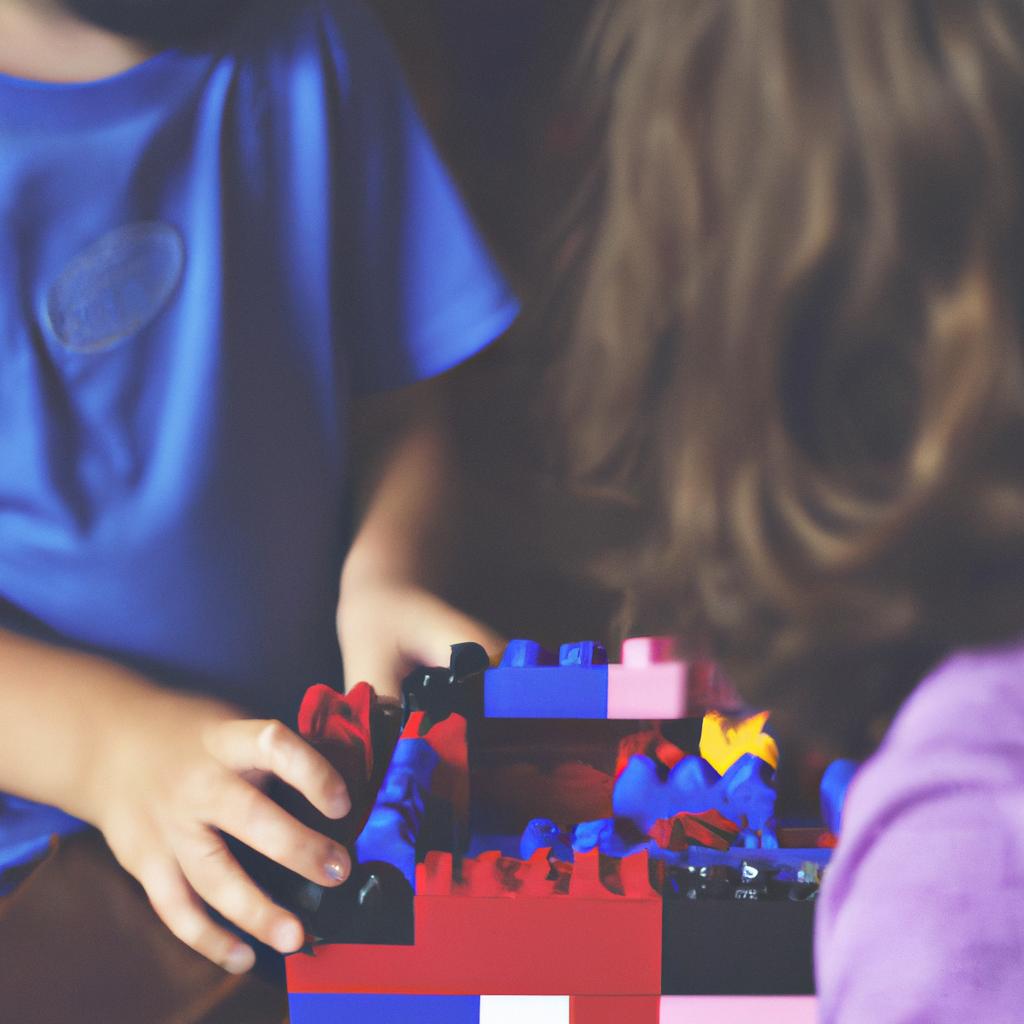Introduction: Why Strong Sibling Relationships are Important
Having strong and positive relationships between siblings is essential for a healthy family dynamic. Not only do siblings form a close-knit bond, but they also provide support, understanding, and companionship to each other through good times and bad. Creating strong sibling relationships can help children become more independent and emotionally secure. It can also increase trust, promote the development of important life skills, and create a sense of belonging in a family.
With the right guidance and encouragement, siblings can become lifelong friends. Fostering these relationships from an early age will help ensure that siblings understand each other’s needs and perspectives and are able to successfully resolve conflicts. By strengthening the emotional bond between siblings, parents can create a foundation for healthier family dynamics.
Characteristics of Healthy Siblings Relationships
Having positive and healthy sibling relationships can have a major impact on family dynamics. It is important to foster these relationships early on so that each family member can feel valued and heard. Success in these relationships may look different for each family, but there are some key characteristics to strive for:
- Empathy: Treating each other with kindness and understanding.
- Respect: Valuing each other’s opinions and not dismissing their feelings.
- Communication: Being honest and open about how you feel and being able to express your needs and wants in a respectful way.
These characteristics are essential for a healthy relationship between siblings and should be encouraged from an early age. When siblings are treated with empathy, respect, and communication, the whole family can experience better dynamics, which can lead to healthier relationships overall.
Avoiding Jealousy and Competition
When siblings have to maintain a competitive atmosphere in their relationship, it can lead to feelings of jealousy and resentment. It is important to recognize these emotions and work on tackling them head-on. Here are some tips on how to avoid competition between siblings while fostering strong relationships:
- Encourage Positive Reinforcement: Take a break from focusing on grading each other’s successes and instead focus on recognizing and praising what your siblings do well. Receiving positive reinforcement will help siblings build up one another’s confidence and promote healthy self-esteem.
- Focus On Individuality: It is important for siblings to remember that they are unique individuals with different strengths and weaknesses. Instead, try to appreciate the differences rather than trying to compete with one another. Encouraging individual interests will give siblings freedom to pursue what makes them happy.
- Set Clear Boundaries: Establishing healthy boundaries is essential for siblings to navigate their relationship. When boundaries are set and respected, it allows siblings to have their own space and be able to explore without feeling uncomfortable.
- Communicate Openly: Open and honest communication is key to navigating any challenging topics that may arise. If siblings feel jealous or threatened, they should communicate these feelings in a respectful manner and try to find a constructive solution together.
Avoiding competition and jealousy between siblings is not always easy. But with clear communication and mutual compassion, it is possible to create a safe and loving environment between siblings.
How Family Dynamics Can Impact Sibling Bonds
Family dynamics have a huge impact on the relationship between siblings. Birth order, age differences and the presence or absence of parents or other caregivers are all factors that can shape their bond.
Birth order is often considered to be one of the most important influences on sibling relationships. Older children tend to act as role models and leaders for younger siblings while younger siblings often look to the eldest child as an example.
Age differences between siblings can also influence their relationship, both positively and negatively. Older siblings may feel pressure to act as parental figures while younger siblings may experience anxiety around their older sibling’s approval.
The presence or absence of parents can also have a direct impact on sibling relationships. For example, when parents are absent due to work or other commitments, siblings may rely on each other for support and emotional connection. On the other hand, their relationship could become strained if they perceive their parents’ presence as taking time away from them.
It is important to consider how family dynamics can shape the relationship between siblings and take steps to create a positive environment where they can develop a strong bond.
Building Positive Family Culture
Family is the cornerstone of society, and sibling relationships are at the center of it. Creating a positive family culture that combines respect, empathy, understanding, and support is essential in building strong sibling bonds. It is imperative for parents to foster an environment which does not allow for emotional or mental retribution, judgment, or fear but rather provides a safe and encouraging space for siblings to express themselves and have their own individual identities.
Open communication and positive reinforcement of healthy sibling dynamics will help children be comfortable speaking up if they feel they’re not being treated fairly. Parents should also create opportunities for their children to interact with each other directly, under supervision. This can be done through regular shared activities or outings such as movies, hikes, or meals.
On top of providing rules and expectations that siblings should abide by, parents should also strive to make both children feel they are valued equally. Showcase each child’s strengths and differences, and never let one be seen as more important or privileged than the other, as this can cause resentment in the long run.
It is also important to teach children conflict resolution skills so they can avoid escalating arguments with each other. Setting aside time for one-on-one conversations between siblings can help them better understand each other and iron out disputes in a compassionate manner.
Conflict Resolution Strategies
It is important for siblings to develop positive strategies for conflict resolution. Without the guidance of an adult, siblings can quickly reach an impasse when faced with disagreements or fights.
Siblings should be encouraged to negotiate and communicate when working through tough disagreements. It is essential that they develop structural methods such as rules, guidelines, and a code of conduct in order to help resolve disputes.
Ideally, it is best to identify and specify the problem or issue, come to an agreement on it, and then establish expectations about how to prevent it from happening again.
When it comes to larger issues, such as those related to justice and fairness, sometimes it is easier for siblings to have outside help from parents or other adults. This can help brothers and sisters to objectively evaluate potential solutions to solve the problem.
It is essential that siblings know that whatever the outcome, they should remain respectful and empathetic towards one another.
Encouraging Bonding Among Siblings
Having a strong bond between siblings can be a powerful thing, and is often beneficial to the overall wellbeing of the family. As siblings develop, having a positive relationship promotes healthy communication and respect for each other. Here are some tips on how to create space for bonding activities between brothers and sisters:
- Try spending at least 15 minutes per day doing an activity together, such as playing a game or reading a book together.
- Make time for them to have fun with each other without adult supervision. Letting them have their own private moments together will show that you trust them and value their bond.
- Encourage them to cooperate in making decisions. Agreeing on what to watch, what to make for dinner, or how to spend a weekend day together can all help foster a sense of equality.
- Respect their individual interests too. Encourage each sibling to cultivate and embrace their own hobbies and passions.
- Help them find common ground. Whether it’s a shared love of the outdoors, sports, cooking, or something else, having something that serves as a bridge for both of them to connect over can be a great way to build trust.
By encouraging bonding activities, siblings can learn valuable lessons about cooperation and respect for one another, which can lead to healthier relationships later in life. With some effort, a strong bond between two siblings can be built, lasting a lifetime.
Balancing Family Time Versus Private Time
Family time can help foster healthy relationships between siblings by allowing them to share experiences and make lasting memories. But it’s also important to understand the value of providing personal space for the siblings to explore their individual interests. This is essential for creating a happy and balanced environment for all members of the family.
Parents can work together with their kids to find the right balance of family time and private time. It’s important to have regularly scheduled family activities that everyone should look forward to, such as game nights or movie nights. These activities are an ideal way to bring the family together and bond.
At the same time, it’s important to create space for each sibling to pursue their own interests. This could include anything from extra-curricular activities, hobbies, or simply spending time alone. Encouraging siblings to express themselves and explore their interests could help to strengthen their relationship as well.
Spending quality time together as a family, as well as giving siblings room to explore their individuality, can help to create a balanced environment that supports strong relationships between siblings.
Conclusion
Building strong sibling relationships is a necessary part of family life that can have lasting effects on all members of the family. Through encouraging empathy, respect, and communication, siblings can develop strong bonds as well as successful conflict resolution strategies. Additionally, creating an atmosphere where it is safe for each individual to express themselves without retribution or judgment can foster a healthy and loving family dynamic.
Ultimately, families should balance quality time spent together and individual activities to promote both healthy sibling relationships and growth in each individual. Lastly, it is important to remember that sibling relationships will look different for every family and be sure to seek out resources for further help.
comments: 0

